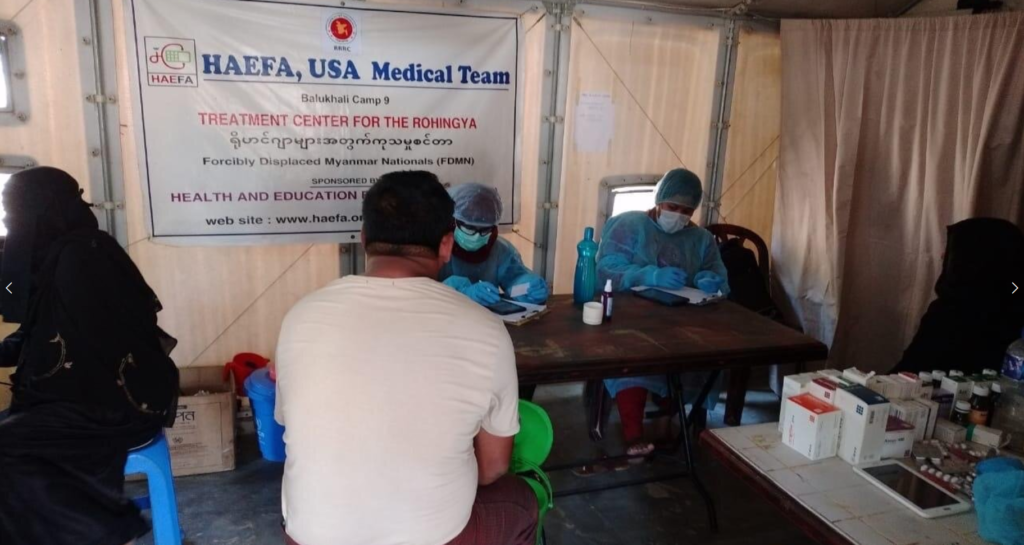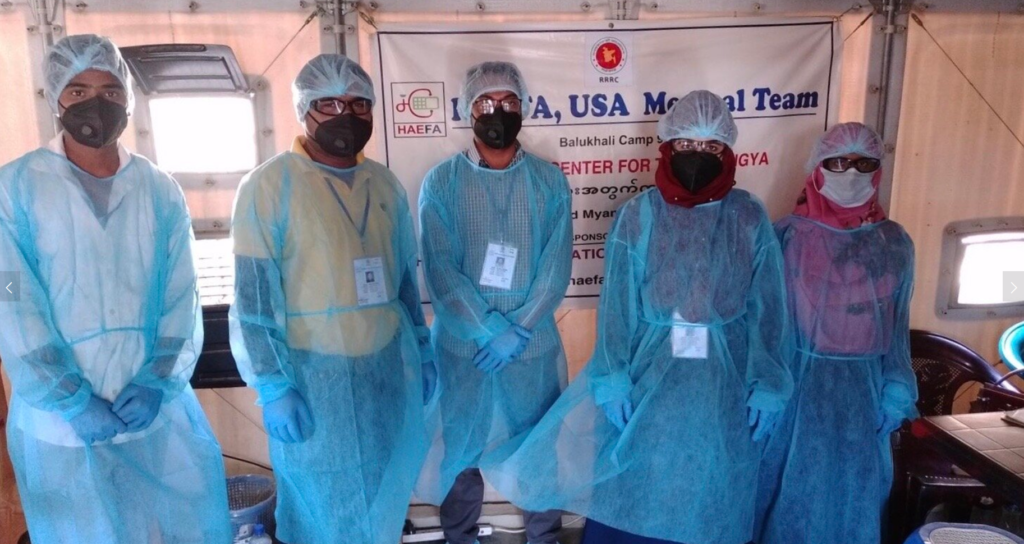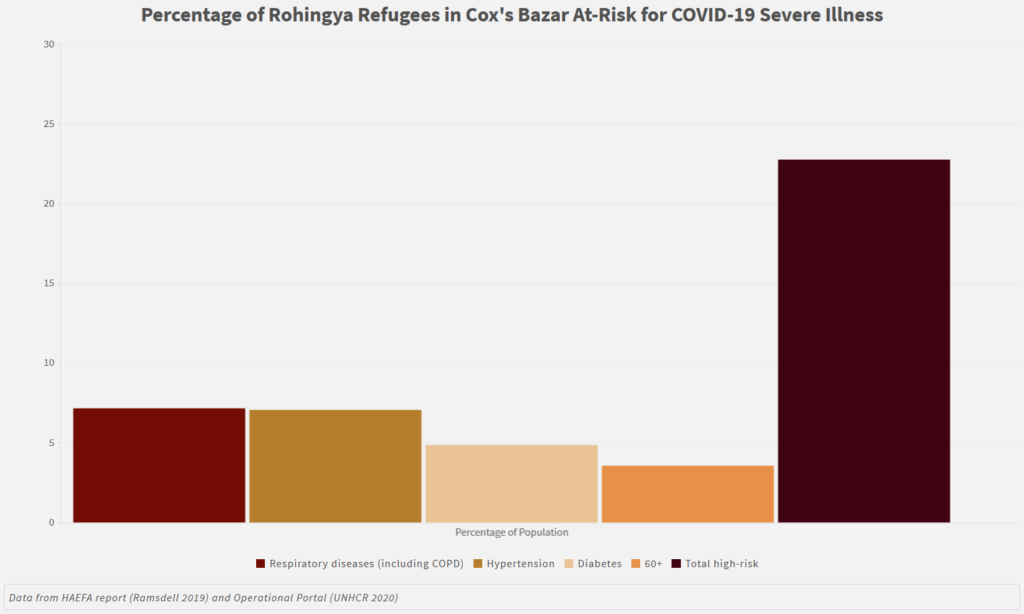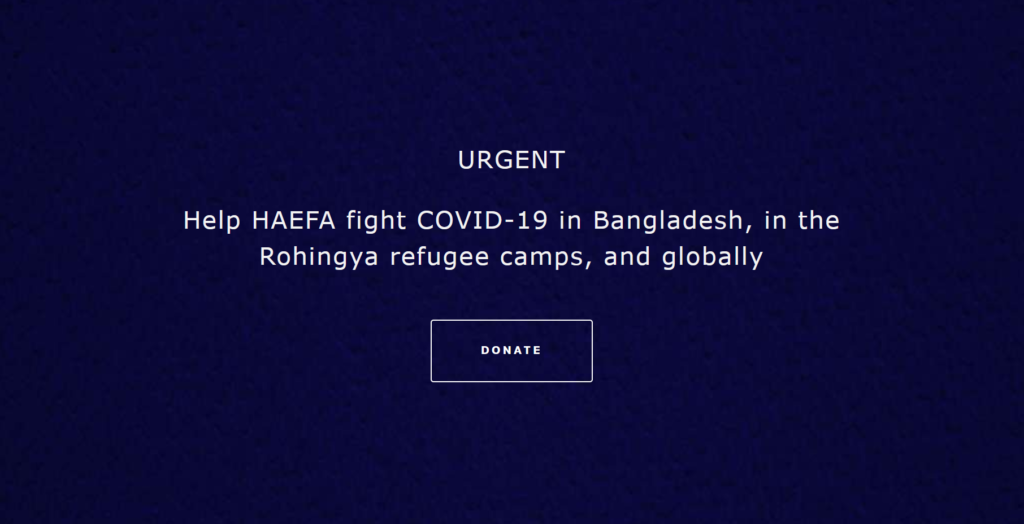
COVID-19 Confirmed Inside Rohingya Refugee Camps
Two cases of COVID-19 were confirmed in the Rohingya camps on May 15, 2020. 1,900 Rohingya refugees are being isolated for testing. HAEFA and other aid agencies are doing everything they can to curb a massive outbreak of COVID-19 in the camps, but the conditions in the camps make this nearly impossible.
The virus is spreading in Kutupalong, the largest refugee camp in the world. As of May 18th, there are now six confirmed cases of COVID-19 in the Rohingya refugee camps. This number is likely underestimated due to lack of testing.
To add to this devastation, Super Cyclone Amphan is currently approaching Bangladesh from the Bay of Bengal. The super cyclone is due to sweep through the Cox’s Bazar region on May 20th, putting the local population and the 1+ million Rohingya refugees in a region vulnerable to landslides in serious danger.
This means YOUR support is all the more urgently needed NOW to prepare HAEFA’s doctors to fight coronavirus. Please donate to supply healthcare professionals with essential and BASIC protective equipment– gloves, masks and PPE. In the overcrowded conditions of the camp, access to this equipment will be essential for HAEFA professionals fighting to lower mortality rates in the refugee population.

HAEFA’s medics have treated over 130,000 Rohingya people since 2017. Now, they urgently need masks, gloves and protective clothing to curb a devastating outbreak and care for those affected.

Rohingya refugees have high rates of non-communicable and chronic diseases which put them at high risk for COVID-19 severe illness, hospitalization and mortality.
-
The 1983 Myanmar Citizenship Act stripped Rohingya people of their citizenship and has prevented them from accessing healthcare for nearly 40 years.
-
22.8% of the community is considered an at-risk population, translating to nearly 200,000 at-risk people living in under 13 square kilometers.
-
Underlying conditions increase the risk of COVID-19 severe infection, hospitalization and mortality.
Overcrowding, insufficient sanitation and poor nutrition make refugees highly vulnerable to COVID-19 infection and mortality– without intervention, the virus will devastate these populations.


